I have trained an image(plain paper) so using that from the video I need to find distance, velocity, acceleration. I found all those things. but my video is getting detected by many different objects. I want to detect only my plain paper. What should I need to do?
Asked
Active
Viewed 648 times
0
-
1Please read the information guides in the **help center** (https://stackoverflow.com/help), in particular, "How to Ask A Good Question" (https://stackoverflow.com/help/how-to-ask) and "How to create a Minimal, Reproducible Example" (https://stackoverflow.com/help/minimal-reproducible-example). – fmw42 Sep 16 '20 at 17:24
1 Answers
1
You can use template-matching.
- You have the following paper image (template):
- Apply Canny edge-detection to find the edges of the image or
video-frame.
Assume below is your image:
-
edged = cv2.Canny(resized, 50, 200) resizedis a grayscale and scaled frame. You can see the description in the below code.
- Find the matched paper using
matchTemplate
-
result = cv2.matchTemplate(edged, template, cv2.TM_CCOEFF) You don't have to use
cv2.TM_CCOEFF. You can find the different modes in hereResult:
Code:
import numpy as np
import imutils
import glob
import cv2
template = cv2.imread("template.jpg")
template = cv2.cvtColor(template, cv2.COLOR_BGR2GRAY)
template = cv2.Canny(template, 50, 200)
(h, w) = template.shape[:2]
for imagePath in glob.glob("img2" + "/pXobJ.jpg"):
image = cv2.imread(imagePath)
gray = cv2.cvtColor(image, cv2.COLOR_BGR2GRAY)
found = None
for scale in np.linspace(0.2, 1.0, 20)[::-1]:
resized = imutils.resize(gray, width=int(gray.shape[1] * scale))
r = gray.shape[1] / float(resized.shape[1])
if resized.shape[0] < h or resized.shape[1] < w:
break
edged = cv2.Canny(resized, 50, 200)
result = cv2.matchTemplate(edged, template, cv2.TM_CCOEFF)
(_, maxVal, _, maxLoc) = cv2.minMaxLoc(result)
if found is None or maxVal > found[0]:
found = (maxVal, maxLoc, r)
(_, maxLoc, r) = found
(startX, startY) = (int(maxLoc[0] * r), int(maxLoc[1] * r))
(endX, endY) = (int((maxLoc[0] + w) * r), int((maxLoc[1] + h) * r))
cv2.rectangle(image, (startX, startY), (endX, endY), (0, 0, 255), 2)
cv2.imwrite("img2/out.jpg", image)
print("Table coordinates: ({}, {}, {}, {})".format(startX, startY, endX, endY))
Ahmet
- 7,527
- 3
- 23
- 47



